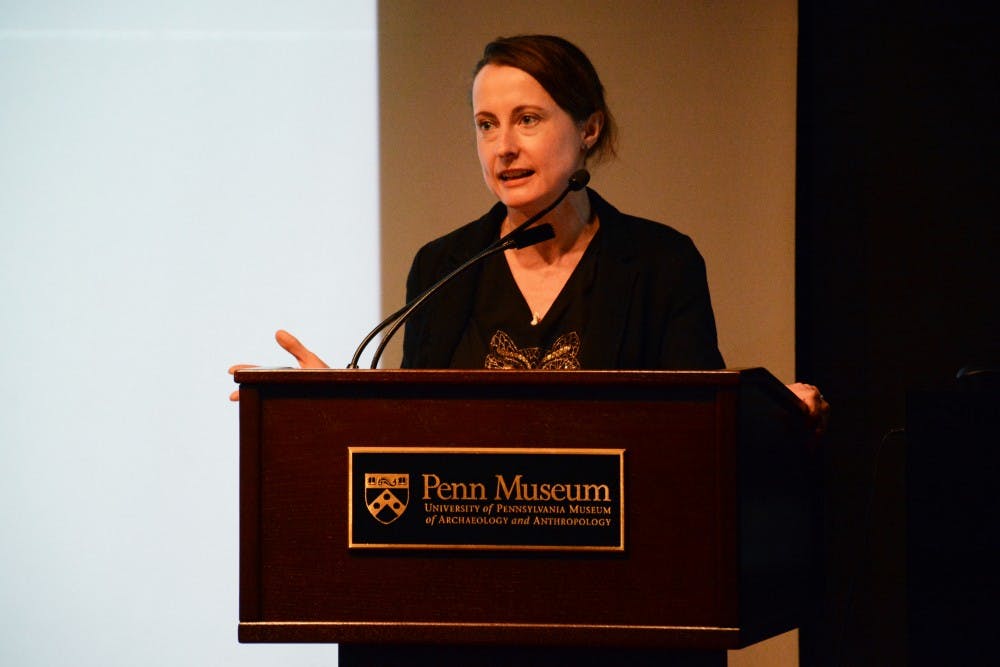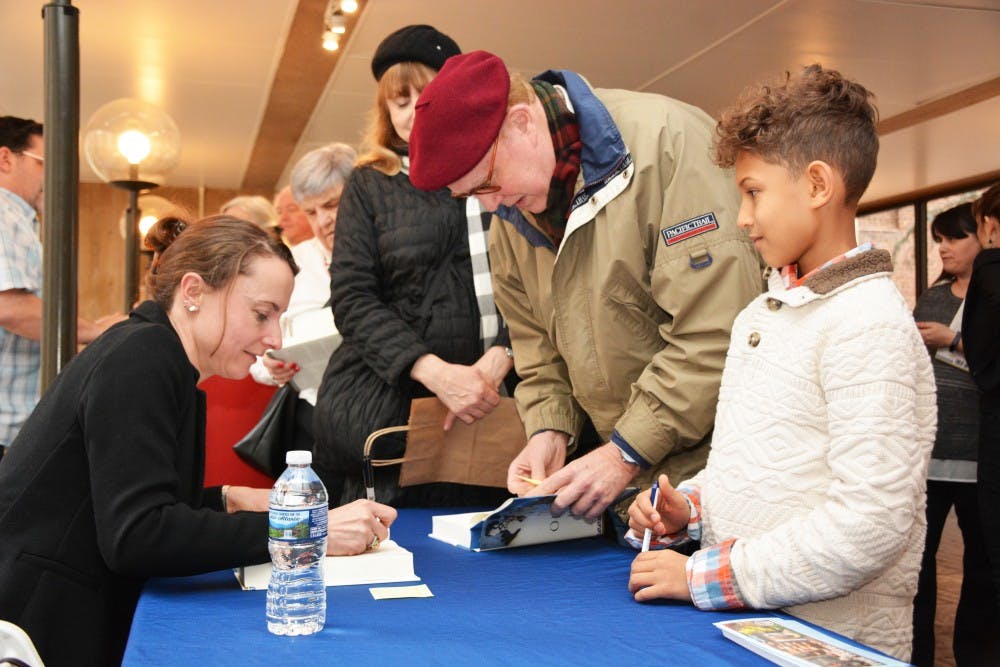
After the overwhelmingly positive reception of the first entire version of the "Odyssey" translated by a woman into English, the translator, Classical Studies professor Emily Wilson, returned to Penn for the annual Petersen Lecture to offer insight into her process.
On Feb. 10, attendees filled an auditorium at the Penn Museum to listen to Wilson, who received widespread acclaim last year for her contemporary translation of Homer’s "Odyssey" that the Washington Post described as "fresh."
During her talk, Wilson emphasized her desire to write a translation that was “differently authentic” to the over 60 existing translations of Homer’s "Odyssey." She said to The Daily Pennsylvanian her translation was “both metrical and musical, but also very clear,” describing these aspects as the main benefits of her work over other translations.

Penn professor Brian Rose, who introduced Wilson before her presentation, said he was impressed by Wilson’s talk, noting, “I think the audience would have been happy to hear one more hour.”
Modern translations of ancient texts are inherently anachronistic, as Wilson claimed in her talk, so her aim was not to try and hide the modernity of her translation but rather write the classic in a way that is accessible to the modern reader and actually makes Homer enjoyable.
College senior Marisa Reeves is reading Wilson’s translation as part of her Greek and Roman mythology class this semester. Reeves said during the talk, Wilson spoke in a tone similar to her translation, noting the "straight-forward, easily approachable manner" that her style of writing also exhibited.
Despite having read three different translations as part of her studies, Reeves said Wilson’s translation is her favorite.
As a professor of classical studies, Wilson is well-versed in the appreciation and teaching of ancient texts. However, she said “studying and reading a poem is a completely different process from translating it,” and describes translating as an “intense, intimate form of writing.”
During the Q&A section of the talk, an 8-year-old boy asked Wilson whether or not she enjoyed writing the translation. Wilson emphasized the difficulty of translating an epic such as the "Odyssey," but said that she did indeed enjoy it.

The annual Petersen Lecture occurs at the Penn Museum in honor of Howard C. Petersen, who was chairman of the museum in 1970 when they chose to stop acquiring antiquities that were looted and illegally exported from their country of origin. Previous years' speakers for the Petersen Lecture include curator Megan Kassabaum, who spoke about the cosmic beliefs of the indigenous people of the Americas.
Rose sees the brilliance in Wilson's translation's “faithful[ness] to the original Greek.”
While reviews about the translation often focus on Wilson's position as the first woman to publish an English translation of the "Odyssey," College junior Maddie Tilyou, who is also studying the translation in her Greek and Roman mythology class, said “it has value for the translation in and of itself regardless of the gender of the translator.”
The Daily Pennsylvanian is an independent, student-run newspaper. Please consider making a donation to support the coverage that shapes the University. Your generosity ensures a future of strong journalism at Penn.
Donate






